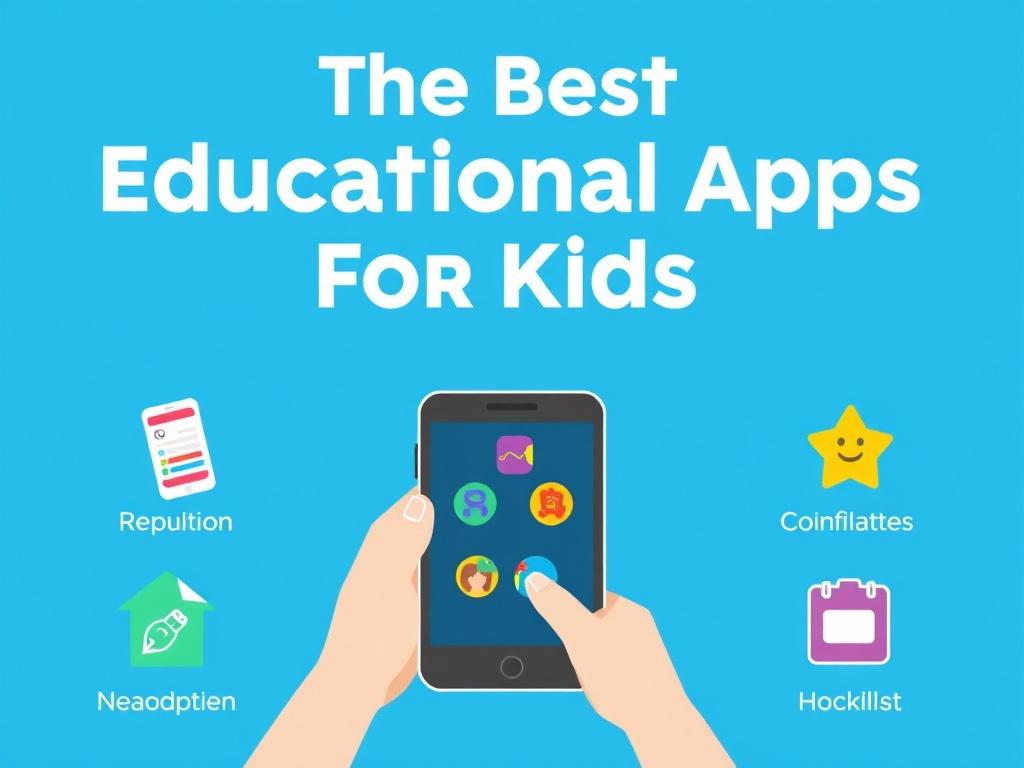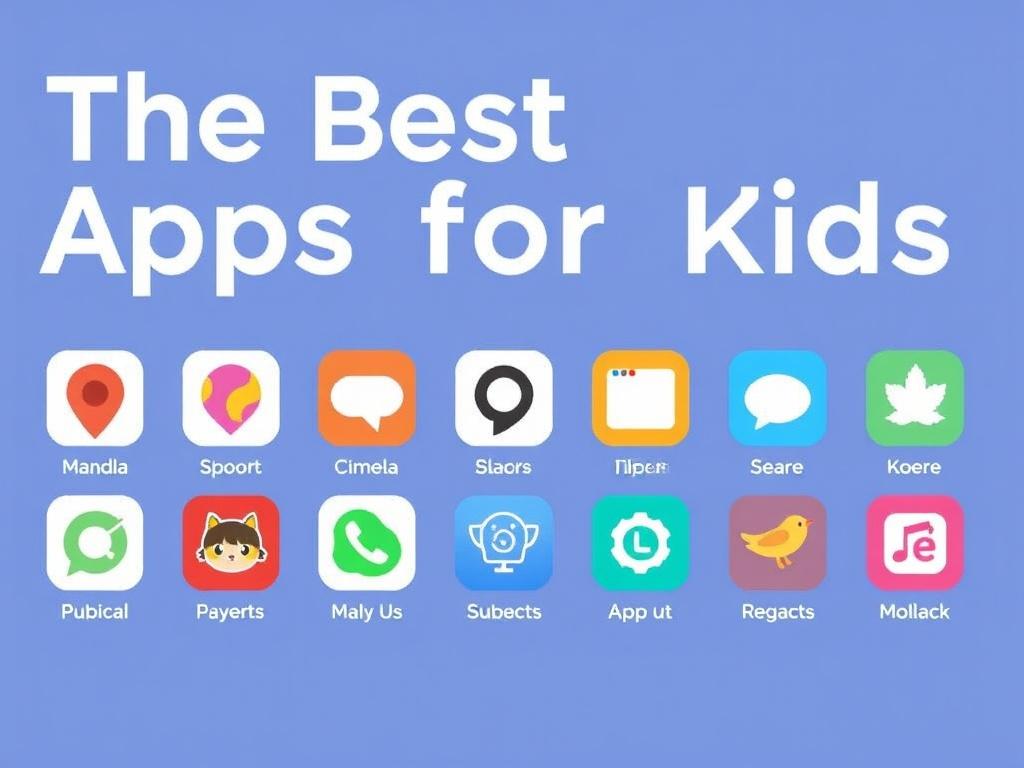SQLITE NOT INSTALLED
In today’s fast-paced digital world, finding the best educational apps for kids can feel both exciting and overwhelming. With thousands of options available on app stores, parents and educators alike are striving to discover tools that not only engage children but also promote meaningful learning. From interactive storybooks and math games to language-learning adventures and science explorations, educational apps hold incredible potential to make learning accessible, fun, and effective.
This comprehensive article will guide you through everything you need to know about the best educational apps for kids. Whether you’re a parent looking for quality screen time activities or a teacher wanting to supplement classroom learning, this guide has you covered. We’ll explore how educational apps benefit children, key features to look for, and detailed reviews of top apps by age group and subject area. Let’s dive in and unlock the world of digital learning together!
Why Educational Apps for Kids Matter
The rise of tablets, smartphones, and other digital devices means children are spending more time with screens than ever before. Instead of worrying about screen time alone, parents can focus on the quality of content their children consume. Educational apps for kids offer opportunities to extend learning beyond the classroom, foster creativity, and practice new skills in an interactive way.
Research shows that well-designed educational apps can improve children’s cognitive development, language skills, problem-solving abilities, and social interaction. When kids use apps that adapt to their learning level, provide immediate feedback, and keep them motivated with rewards and engaging challenges, they are more likely to retain information and develop a love for learning.
Moreover, educational apps are incredibly convenient. They enable learning anytime, anywhere — whether during a car ride, quiet time at home, or in between activities at school. Such flexibility is essential in our modern lifestyle.
Key Features to Look for in the Best Educational Apps for Kids

With countless educational apps to choose from, how can you identify the best ones? Here’s a list of essential features to look for when choosing apps for children:
- Age-Appropriate Content: The app should match your child’s developmental stage and be neither too easy nor too difficult.
- Curriculum Alignment: Good educational apps are designed with learning goals in mind, corresponding to established educational standards.
- Engagement & Interactivity: It’s important that apps include interactive elements — such as puzzles, quizzes, or games — to hold children’s attention and encourage active participation.
- Usability and Design: Intuitive navigation and kid-friendly interfaces ensure children can use the app independently with minimum frustration.
- Feedback and Progress Tracking: Apps that offer personalized feedback and track a child’s progress help parents and teachers monitor growth and adapt learning.
- Safety and Privacy: Look for apps that do not collect unnecessary data, avoid advertisements aimed at children, and offer parental controls.
- Language Options: Especially valuable for bilingual households or language learners, supporting multiple languages enhances accessibility.
Top Educational Apps for Kids by Age Group
To make your selection easier, we’ve categorized some of the best educational apps for kids based on different age groups, highlighting apps that balance fun with effective learning for each developmental stage.
Educational Apps for Toddlers (Ages 2-4)
Toddlers are naturally curious and love exploring through sensory play. Here are some apps that cater to their learning style, focusing on early literacy, shapes, colors, and simple problem-solving.
| App Name | Key Features | Platform | Why It’s Great |
|---|---|---|---|
| Sago Mini World | Creative exploration, safe content, no ads | iOS, Android | Encourages imagination through open-ended play and educational mini-games tailored for toddlers. |
| Endless Alphabet | Vocabulary building, interactive puzzles, sounds | iOS, Android | Helps children learn letters and words with fun animations that capture attention. |
| Peekaboo Barn | Animal recognition, simple narrations | iOS, Android | A gentle introduction to animals and sounds great for early vocabulary development. |
Educational Apps for Preschoolers (Ages 4-6)
As preschoolers start understanding more complex concepts, the best educational apps for kids should emphasize foundational skills in literacy, math, and creativity.
- ABCmouse: A comprehensive early learning program combining reading, math, art, and music through fun activities and rewards.
- Starfall ABCs: A beloved app focusing heavily on phonics, letter recognition, and early reading through stories and songs.
- Moose Math: Designed to help children learn counting, addition, subtraction, and shape recognition within playful games.
Educational Apps for Elementary Kids (Ages 6-10)
Elementary-aged children are mastering basic reading and math, and beginning to explore science and social studies. Educational apps for kids in this group should challenge their growing curiosity and critical thinking.
| App Name | Focus Area | Platform | Why It’s Effective |
|---|---|---|---|
| Khan Academy Kids | Comprehensive learning: Math, reading, logic | iOS, Android | Offers a personalized learning path with thousands of interactive activities and books. |
| Duolingo ABC | Literacy, phonics, early reading | iOS, Android | Uses bite-sized lessons focusing on letters and words to build strong reading foundations. |
| Science360 | Science exploration | iOS, Android | Provides videos and articles about scientific concepts and phenomena tailored for kids. |
Educational Apps for Preteens (Ages 10-12)
Preteens often seek deeper understanding and challenges, making this the ideal time for apps that offer interactive problem solving, advanced concepts, and creative outlets.
- Prodigy Math Game: Combines math practice with an engaging fantasy role-playing game format that motivates preteens to learn.
- BrainPOP: Offers videos, quizzes, and activities across subjects like science, history, and English language arts.
- ScratchJr: Introduces coding basics through visual programming that fosters creativity and logical thinking.
Popular Educational Apps for Specific Subjects

If you are looking for apps that focus on particular subjects, here’s a helpful guide to some of the best educational apps for kids in core areas.
Math Learning Apps
Mathematics is a key area where many children either develop a lasting love or face challenges. The right app can cultivate confidence and improve problem-solving skills.
| App Name | Age Range | Key Features |
|---|---|---|
| Moose Math | 4-8 | Engaging games covering counting, shapes, addition, and subtraction. |
| Prodigy Math Game | 8-12 | Game-based adaptive math practice aligned with curriculum standards. |
| DragonBox Algebra 12+ | 10-12+ | Teaches fundamental algebra concepts through fun and intuitive puzzles. |
Language & Literacy Apps
Building strong reading, writing, and language skills early on supports success across all learning areas. These apps help improve vocabulary, phonics, and fluency.
- Endless Alphabet: Interactive puzzles that teach new words with charming animations for toddlers and preschoolers.
- Duolingo ABC: Focuses on foundational literacy through fun lessons that engage young readers.
- Epic!: A digital library with thousands of books, audiobooks, and videos for kids to explore at their own pace.
Science and Exploration Apps
Science learning apps spark wonder and encourage children to ask big questions about the world and universe.
| App Name | Description | Ideal Age |
|---|---|---|
| Science360 | Offers science news, videos, and images from researchers and NASA, engaging kids in real-world science. | 8-12+ |
| NASA App for Kids | Interactive space exploration app with games, videos, and missions. | 6-12 |
| Curiosity Machine | Hands-on engineering challenges and maker activities designed to build STEM skills. | 10-14 |
Balancing Screen Time: Tips to Make the Most of Educational Apps
While the best educational apps for kids provide wonderful learning opportunities, it’s essential to balance screen time with offline activities for overall healthy development. Here are some practical strategies to ensure tech use supports your child’s growth:
- Set Clear Time Limits: Use built-in app timers or parental control tools to keep daily screen time reasonable, in line with pediatric recommendations.
- Choose Quality Over Quantity: Prioritize apps that offer meaningful content rather than passive entertainment.
- Co-Engage: Whenever possible, explore the app together with your child to encourage discussion and deeper understanding.
- Follow Up with Real-Life Activities: For example, after a science app, try simple experiments or outdoor observations to connect learning with the real world.
- Encourage Variety: Mix educational apps with reading books, physical play, and creative arts to foster a well-rounded development.
How to Introduce Educational Apps to Your Child
Introducing new educational apps can be an exciting experience for kids, but the transition works best when done thoughtfully. Here’s a step-by-step approach to help your child get the most out of educational app use:
- Start with a Trial Run: Download free versions or trials to explore apps yourself before sharing them with your child.
- Set Expectations: Explain how and when your child will use the app and what they can learn from it.
- Make it a Routine: Incorporate app use into daily or weekly learning schedules for consistency.
- Monitor Usage: Keep an eye on how your child interacts with the app to ensure it remains engaging and age-appropriate.
- Encourage Reflection: Ask your child to talk about what they’ve learned or create something related to the app’s content.
Future Trends in Educational Apps for Kids
As technology continues to evolve rapidly, educational apps are becoming smarter, more personalized, and immersive. Here are some trends to watch that may shape the future of learning apps for children:
- Artificial Intelligence: AI-driven apps tailor content and challenges dynamically to each child’s learning pace and style.
- Augmented Reality (AR) and Virtual Reality (VR): These technologies bring interactive experiences where kids can explore historical sites, outer space, or the human body in 3D.
- Gamification: Increasing inclusion of badges, leaderboards, and rewards transforms learning into a game that motivates continued participation.
- Collaborative Learning: New apps promote group problem solving and social interaction through online peer collaboration.
- Inclusivity and Accessibility: App developers are focusing on making educational content accessible for all children, including those with disabilities or who speak diverse languages.
Conclusion: Choosing the Best Educational Apps for Your Child’s Success
Finding the best educational apps for kids requires balancing engaging content, educational value, age-appropriateness, and safety. Fortunately, the market today offers a range of thoughtfully designed apps tailored for different ages, subjects, and learning preferences. From toddlers to preteens, these apps can nurture curiosity, boost essential skills, and inspire lifelong learning habits.
Remember, technology is a powerful learning companion but works best when combined with real-world experiences, parental involvement, and diverse activities. By choosing the right apps and guiding your child in their use, you are opening doors to knowledge and fun in the exciting digital age.
Ready to explore educational apps with your little learner? Start with a few favorites we’ve highlighted and watch how your child’s love for learning grows!
